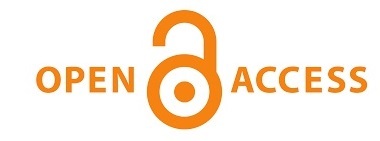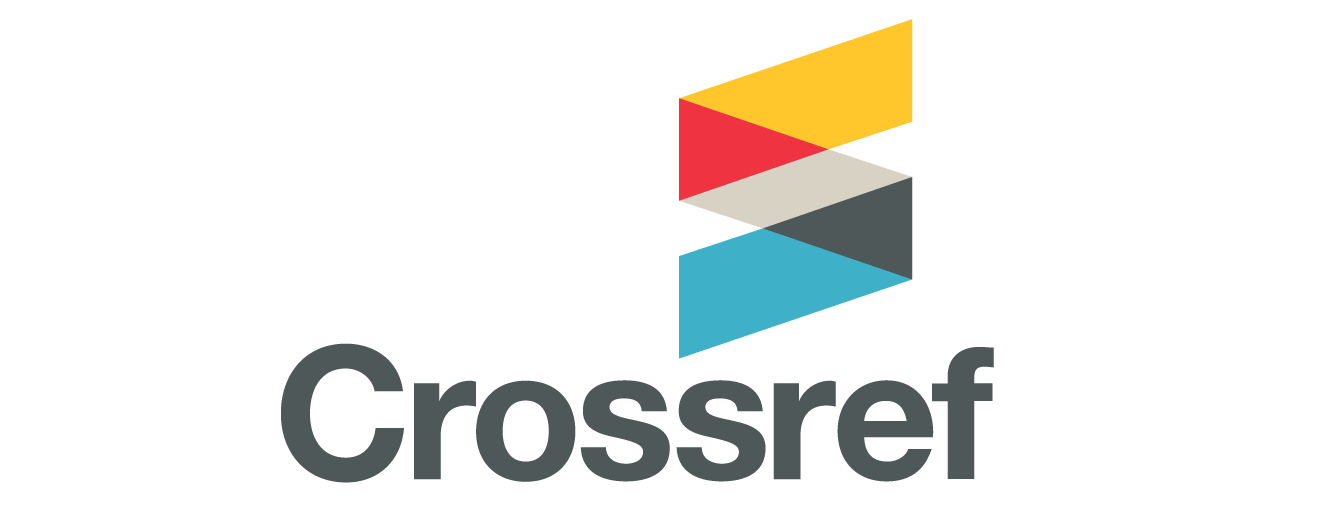Modern Social Media as a Tool for Science Popularization in the Information Society
DOI:
https://doi.org/10.15407/sofs2020.04.088Keywords:
science popularization, Internet, social network, Facebook, Instagram, YouTube channel, scientific communication, subscribers.Abstract
The article contains the results of research of modern social media as the effective tool for dissemination of scientific knowledge and platforms for involvement the audience. Relevance of research is caused by growing scientific interest to emergence of a global communicative space, distinctive features of which are informal electronic communication, self-organization of scientists, and communication in social networks generally. The purpose of the article is to substantiate an application of modern social media for science popularization in the information society. The objects of the study are social networks Facebook, Instagram, and YouTube channels. 4 categories of Facebook pages and groups on science popularization were analyzed: site pages, project pages, community pages, and personal pages of scientists. The coverage of science in social network Instagram was analyzed by the following parameters: page (blog) name, topics, number of subscribers, and number of publications. The analysis of YouTube platform, limited to Ukrainian-language YouTube channels, covers 9 channels according to the following parameters: subject area of channels, number of subscribers and views, and channel’s lifetime. The study shows that popular science groups and pages on social networks Facebook and Instagram are effective tools for science popularization, one of the primary channels of communication between scientists, platforms for seeking like-minded people and keeping in touch with readers, and also enable scientists to increase significantly availability of the results for the general public and faster integrate the obtained data into relevant scientific context. They are a convenient option for conducting surveys and questionnaires, formation of theme groups for discussion of a particular problem, interaction between researchers from different countries and experience exchange, also dissemination of findings, invitation of people wished to participate in various scientific events. It is found that YouTube channels, having a significant number of subscribers and views, are an effective way for science popularization and learning. It is concluded, that at a time when new social media penetrates science increasingly, Ukrainian research and educational institutions, individual researchers should make the most of the tool to provide public with high-quality popular science content. Further research on issues of using Internet space for science popularization should be focused on analysis of new tools for popularization of science and their applications by scientists.
References
Gorbunov-Posadov, M.M. (2017). Internet activity as a scientist’s duty. [b. m.]: Publishing solutions, 64. DOI: 10.20948 / ridero-2017-gorbunov (last accessed: 18.05.2020) [in Russian]. https://doi.org/10.20948/ridero-2017-gorbunov
Bucchi, M. & Trench, B. (Eds.). (2018). Handbook on public communication of science and technology. Mоscow: Alpina non-fiction, 592 [in Russian].
Shirokanova, A.A. (2011). Electronic Scientific Communication and “Invisible Colleges” in the Information Society. Philosophy and Social Sciences, 3-4, 57-61 [in Russian].
Arefiev, P.G. (2010). Integration of Russian academic community into global communications. Sociological journal, 2. Retrieved from //https://cyberleninka.ru/article/n/integratsiya-rossiyskogo-akademicheskogo-soobschestva-v-globalnye-kommunikatsii (last accessed: 14.05.2020) [in Russian].
Onyshchenko, О.S., Gorovy, V.M., Popyk, V.I. & et. al. (2013). Social networks as a factor of development of civil society. Kyiv, 129–133 [in Ukrainian].
Gillen, P. (2009). New agents of influence. USA: Society for New Communications Research, 80 [in Russian].
Nicholas, D. and Rowlands, I. (2011). Social media use in the research workflow. Information Services and Use, 31(1), 61-83. https://doi.org/10.3233/ISU-2011-0623
Quan-Haase, A., Martin, K. and McCay-Peet, L. (2015). Networks of humanities scholars: The informational and social uses and gratifications of Twitter. Big Data & Society, vol. 2, issue 1. https://doi.org/10.1177/2053951715589417
Gruzd, A., Haythornthwaite, C., Paulin, D., Gilbert, S. and Esteve del Valle, M. (2016). Uses and Gratifications factors for social media use in teaching: Instructors’ perspectives. New Media & Society, vol. 20, issue 2, pp. 475-494. https://doi.org/10.1177/1461444816662933
Makhovskaya, O. (2000). Russian scientists and Internet: flashback and look forward. Pro et Contra, vol. 5, issue 4. Retrieved from http://cyberleninka.ru/article/n/novyeinformatsionno-kommunikatsionnye-tehnologii-vrossiyskoy-akademicheskoynauke-istoriya-i-rezultaty (last accessed: 14.05.2020) [in Russian].
Egerev, S.V., Yushin, V.P. (2007). The future of Russian science in the works of perestroika authors – view in 20 years. Science. Innovation. Education. Moscow, issue 2. Retrieved from http://riep.ru/upload/iblock/8e8/8e87987c743314f471d50f165f2a4007.pdf (last accessed: 14.05.2020) [in Russian].
Al-Aufi, A., Fulton, C. (2015). Impact of social networking tools on scholarly communication: a cross-institutional study. The Electronic Library, vol. 33, issue 2, 224-241. https://doi.org/10.1108/EL-05-2013-0093
Lupton, D. (2014). Feeling better connected: Academics’ use of social media. Retrieved from https://www.canberra.edu.au/about-uc/faculties/artsdesign/attachments2/pdf/n-and-mrc/Feeling-Better-Connected-reportfinal.pdf (last accessed: 12.05.2020).
Manca, S. and Ranieri, M. (2016). Yes for sharing, no for teaching!: Social Media in academic practices. The Internet and Higher Education, 29, 63-74. https://doi.org/10.1016/j.iheduc.2015.12.004
Shesteryonkina, L.P. (2014). The main characteristics of a new social media. Scientific notes of Transbaikal State University. Philosophy, history, oriental studies, 2, 107–111 [in Russian].
Kiriya, I.V. Social networks in science. Retrieved from: https://okna.hse.ru/news/195824996.html (last accessed: 17.05.2020) [in Russian].
Shvartsman, M. Scientists’ social media as an information source. Retrieved from http://www.aselibrary.ru/blogs/archives/1135 (last accessed: 14.05.2020) [in Russian].
A number of Facebook users in Ukraine increased by 7.7 %, Instagram -by 4.5 % in 2019 – research. Retrieved from https://ua.interfax.com.ua/news/telecom/647363.html (last accessed: 16.05.2020) [in Ukrainian].
Demchenko, D. Ukraine is the leader in terms of growing popularity of Facebook and 6 more indicators of Ukrainian social network audience. Retrieved from http://ain.ua/2019/02/13/auditoriya-facebook-v-ukraine/ (last accessed: 12.05.2020) [in Russian].
Problems of science popularization in Ukraine: thoughts of scientists. Retrieved from http://ratinggroup.ua/ru/research/ukraine/problemy_populyarizacii_nauki_v_ukraine_mysli_uchenyh.html (last accessed: 30.04.2020) [in Russian].
Science popularization in Ukraine: issues and prospects. Retrieved from http://www.nas.gov.ua/text/pdfNews/Senenko_report.pdf (last accessed: 28.04.2020) [in Ukrainian].
Blagodeteleva-Vovk, S. Plagiarism as a sign of social degradation. The weekly mirror, September 9, 2016. Retrieved from https://dt.ua/SCIENCE/plagiat-yak-oznaka-suspilnoyi-degradaciyi-_.html (last accessed: 20.05.2020) [in Ukrainian].
Galushko, K. I am officially leaving the Public Council under the President of Ukraine on National Unity. Retrieved from https://www.istpravda.com.ua/columns/2019/12/18/156745/ (last accessed: 15.05.2020) [in Ukrainian].
Science teen platform: website. Retrieved from http://inscience.io/teens-platform/ (last accessed: 2.07.2020) [in Ukrainian].
Instagram. Vikipedia: free encyclopedia. Retrieved from https://uk.wikipedia.org/wiki/Instagram (last accessed: 24.04.2020) [in Ukrainian].
Open access and altmetrix – application in the libraries. Retrieved from http://library.vnmu.edu.ua/wp-content/uploads/2016/12/Altmetrik.pdf. (last accessed: 24.04.2020).
TED Speakers: website. Retrieved from https://www.ted.com/speakers?sort=last&topics%5B%5D=science (last accessed: 25.04.2020).
“Khan Academy”: quality education for everyone and everywhere: website. Retrieved from https://dyskurs.info/han-akademiya-yakisna-osvita-dlya-vsih-i-vsyudy/ (last accessed: 25.04.2020).
Feedspot: website. Retrieved from https://blog.feedspot.com/science_youtube_channels/ (last accessed: 26.04.2020).
Batygin, G.S. (2001). “Matthew Effect”: acquired advantage and distribution of statuses in science. Bulletin of the Tyumen State Oil and Gas University, 18, 161-173. Retrieved from http://read/newlibrary.ru/read/batygin_g_s/page (last accessed: 13.05.2020) [in Russian].
Downloads
Published
How to Cite
Issue
Section
License
Copyright (c) 2020 Science and Science of Science

This work is licensed under a Creative Commons Attribution-NonCommercial-NoDerivatives 4.0 International License.





